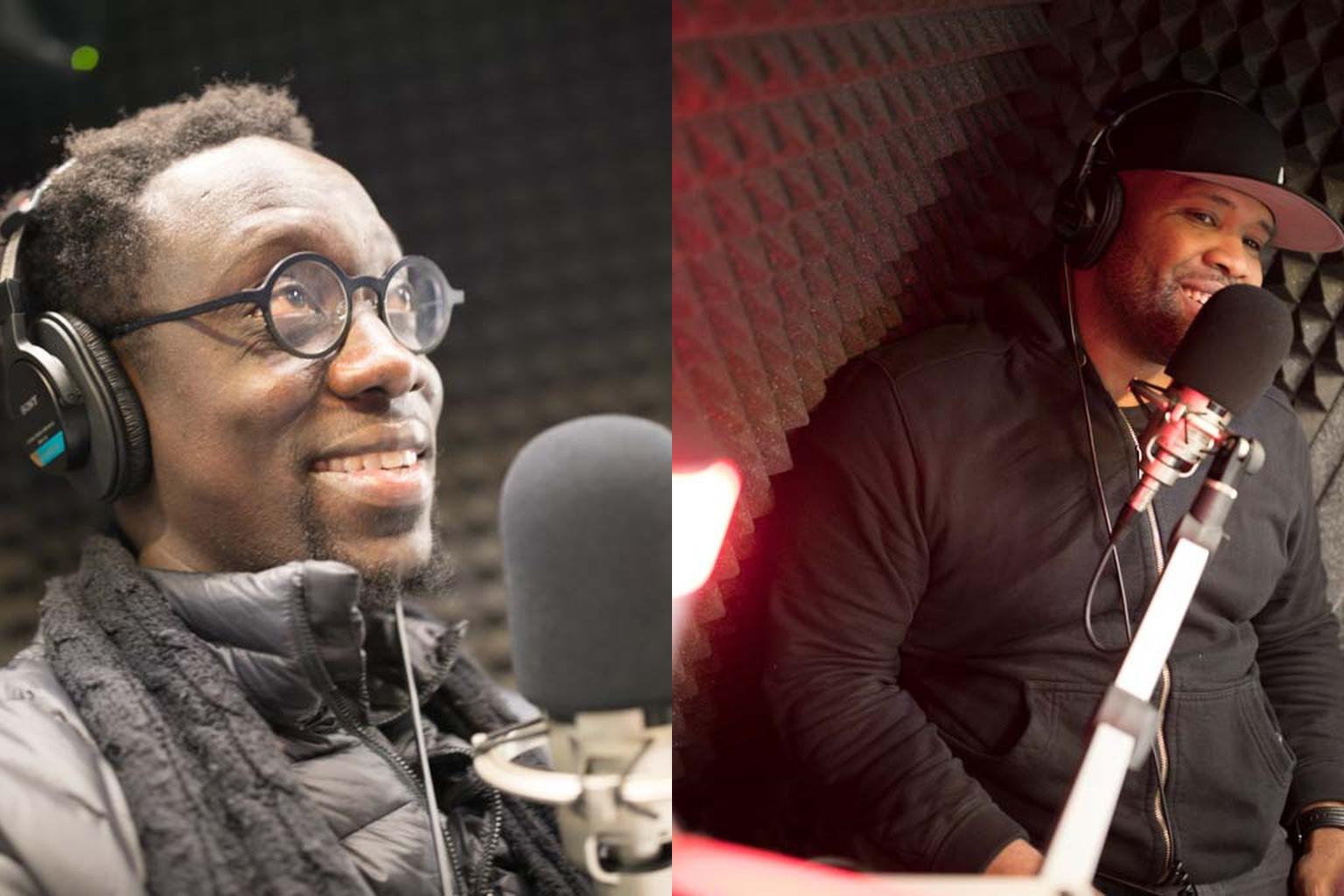
Read NPR's latest Black Violin feature here.
Kevin Sylvester wasn’t thrilled when his mom made him join the orchestra in elementary school.
"My whole life I thought it was like ballerina music," he explained. "Classical music didn’t relate to me or necessarily my neighborhood or the culture I grew up in. I wanted to play something cooler."
And when he got to class, the only instrument left was the violin.
"At the beginning, I was embarrassed by it," he said.
It was a similar situation for Will Baptiste, who went to the same predominantly African-American high school as Sylvester in south Florida. Baptiste thought he had signed up for band, not orchestra.
"I wanted to play the saxophone -- the cool instrument," Baptiste said.
But the orchestra teacher secretly won a golf bet with the band teacher to have Baptiste in his class. Baptiste just thought he was in the wrong class.
"I was a little upset at first," he said. Then he took up the viola and learned to love it. "It made me feel different. This instrument was always very far from me and from people I knew, so to be able to play it was kind of cool."
Sylvester and Baptiste graduated high school and went to different colleges. They say it was a culture shock.
Sylvester recalled high school as a melting pot, but at the colleges they attended the student population was mostly white. Sylvester went to Florida International University, where he said "I was the only black guy in my orchestra for a couple of years."
They were separately living the same experience.
"We were just trying to find ourselves, honestly. We’d gotten so good at this instrument and then we get to college, and it just didn’t speak to us in the same way."
Then Sylvester found the music lab in the college library.
"I started messing with electronic music," he said.
Shortly thereafter, the duo came back together.
“Once we were able to make our own beats and put violins with it, I felt like that was our voice. And then we just tried to … champion this new sound as much as we could."
They formed the group Black Violin in 2004, and made their first big break at New York’s famed Apollo Theater. Soon after, Alicia Keys’ management invited them to play with her at the Billboard Music Awards.
Today, the duo is a worldwide sensation known for mixing classical with hip hop. Their YouTube videos have received millions of views.
A lot of their focus is on youth. They try to play for 100,000 kids every year.
Sylvester says when they make music they ask themselves, "How can we make 10-year-old DeShawn from our neighborhood understand this?"
"To take classical music, and make it speak to people that don’t normally know what to do with it, that's the challenge that we take. And, it's fun for us."









